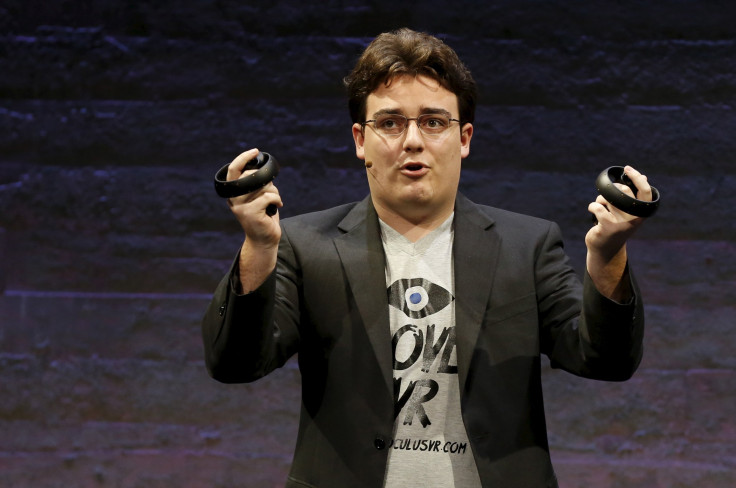Oculus Founder Working On Self-Driving Technology For Border Surveillance

Oculus founder Palmer Luckey, who was ousted from the company after making a $100,000 donation to an anti-Hillary Clinton organization last year, seems to have a new project under his wings.
Luckey, who sold Oculus to Facebook for $2 billion in 2014, is working on a surveillance technology which can be used for monitoring borders and military posts, the New York Times reported Sunday. He is reported to have set up a company for the same purpose, details of which are currently confidential. The company is being funded by PayPal founder Peter Thiel, who works as a technology advisor to President Donald Trump. It is based in South California and employs just a “handful of people” including Christopher Dycus, one of Oculus’ first employees. Luckey wants to gradually start working on advanced military-grade technology, such as drones.
Read: Palmer Luckey Net Worth: Oculus Co-Founder Leaves Facebook
“We are spending more than ever on defence technology, yet the pace of innovation has been slowing for decades. We need a new kind of Defence Company, one that will save taxpayer dollars while creating superior technology to keep our troops and citizens safer,” he wrote in a statement to the Times.
Post Oculus, Luckey’s next idea is reported to be the use of a self-driving technology Lidar (light detect and ranging) along with infrared sensors and cameras to monitor the border for illegal crossings among other things. Lidar is used for object detection in self-driven cars and works to sense and help such cars avoid obstacles on the road.
According to Luckey, it could be used for perimeter technology, including surveillance of military bases and stadium events. The sensors are powerful enough to detect oncoming drones and can be mounted on telephone poles, making such technology a cost-effective method for policing borders.
Luckey is reported to have already discussed employment of the technology with Steve Bannon, President Trump’s chief strategist and Ryan Zinke in April, the secretary of the interior department, according to leaked Interior Department logs.
Heather Swift, a spokeswoman for Zinke, told the Times, “We are spending more than ever on defense technology, yet the pace of innovation has been slowing for decades,” he wrote. “We need a new kind of defence company, one that will save taxpayer dollars while creating superior technology to keep our troops and citizens safer. There was no action after the meeting.”
The fact there are much more cost-effective ways to man the border is not new. Technology does offer a bigger solution than a physical wall, which can be bypassed using multiple ways. Furthermore, the efficiency of such techniques can be assessed accurately and even improved, if needed over time, unlike a physical border wall, which might end up costing $21.6 billion, according to an internal Homeland Security report.
© Copyright IBTimes 2024. All rights reserved.




















